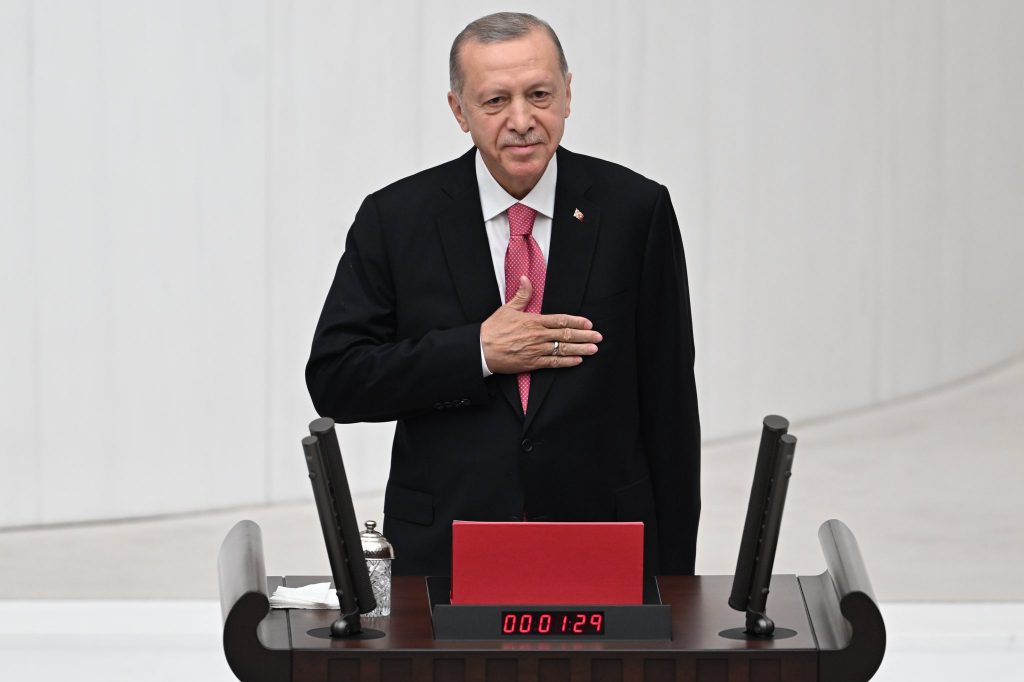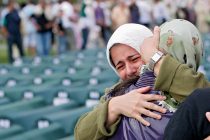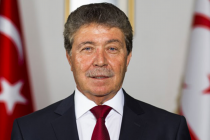Recep Tayyip Erdoğan was sworn in for a new five-year term as President of the Republic of Turkiye on Saturday, 3 June, stretching his rule into a third decade. He took the oath at the Turkish Parliament in Ankara, with the ceremony broadcast live to the nation on multiple television channels.
“I, as President, swear upon my honour and integrity before the great Turkish nation and history to safeguard the existence and independence of the state,” pledged Erdoğan, before adding, “We will embrace all 85 million people [in the country] regardless of their political views, origins, or sect.”
Devlet Bahçeli, leader of the far-right National Movement Party (MHP) and a close ally of Erdoğan, officiated the ceremony as the temporary Speaker of the Grand National Assembly of Turkiye.
Erdoğa was noticeably warmer and more inclusive in his inauguration speech, stressing unity several times, as well urging people to put aside hostility towards opponents. The conciliatory tone was well received, especially given the president has been the primary driver of the angry polarisation of Turkish society.
The 69-year-old leader regularly uses divisive rhetoric when addressing the Turkish public as a means of defending himself and his government, but few expected his nasty outburst in Istanbul on the night of the run-off on 28 May. Although the results showed Erdoğan had won again, he chose to again tear into those he had denigrated and smeared extensively during the election campaign, lashing out at his opponent Kemal Kılıçdaroğlu, the LGBTQ community and the jailed Kurdish leader Selahattin Demirtaş. There was no sign of that on Saturday as Erdoğan turned into the elder statesman.
After the official inauguration ceremony in Parliament, the president and his wife, First Lady Emine Erdoğan, hosted a lavish event at the presidential palace in the capital, which was attended by dozens of world leaders.
There were representatives from 78 countries, according to the Anadolu Agency – more than double the number that attended Erdoğan’s last inauguration in 2018.
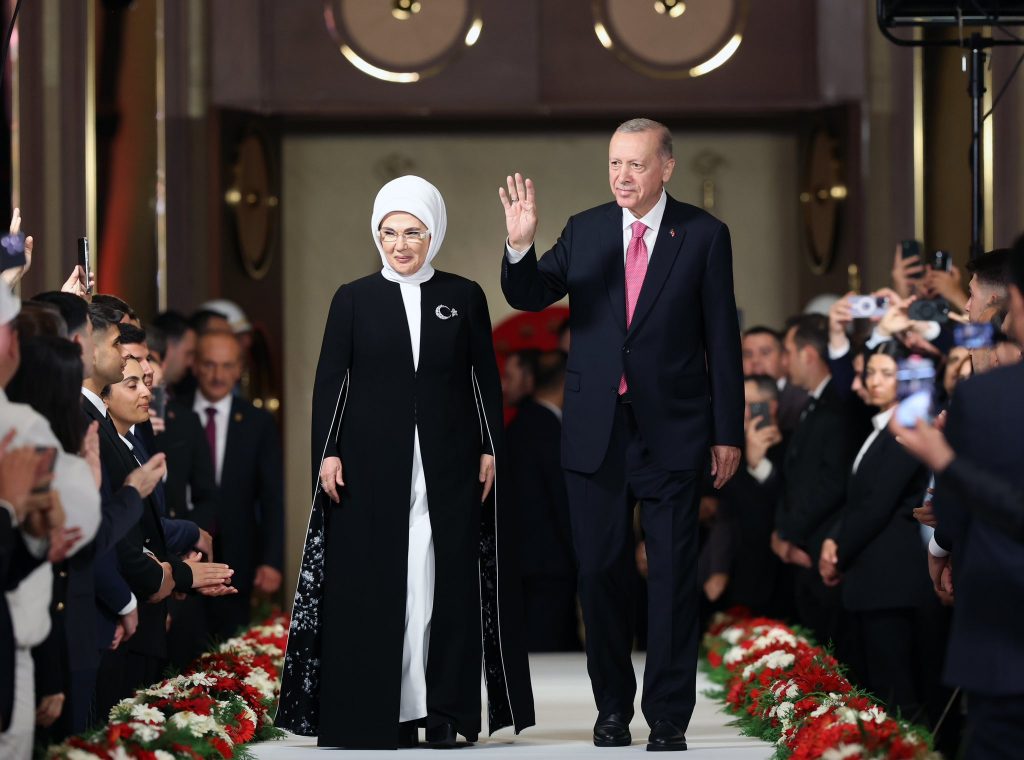
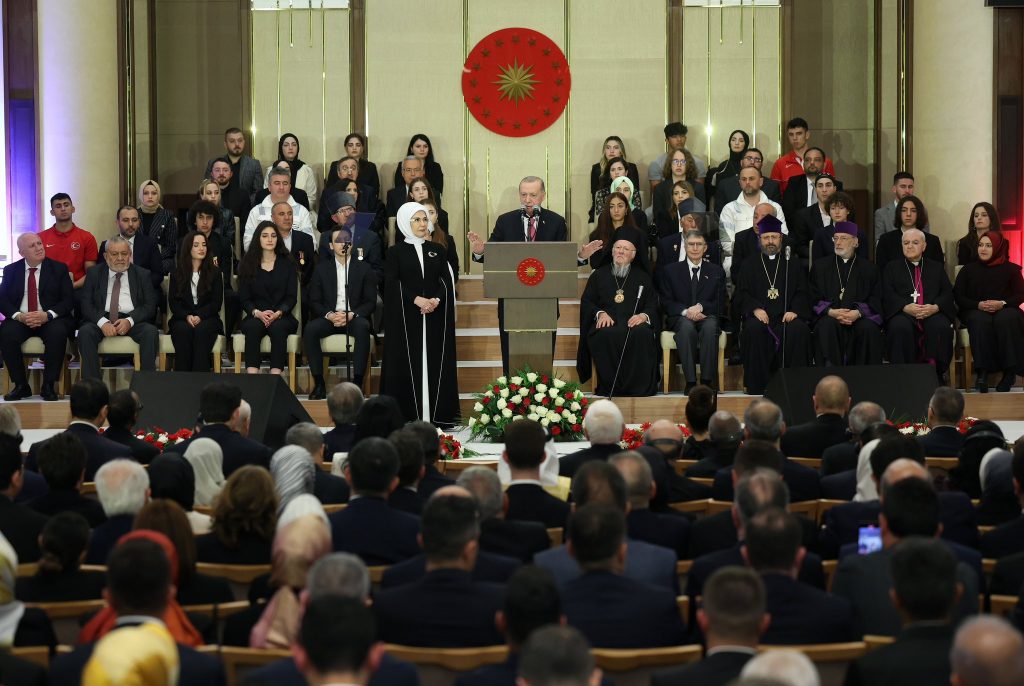
The high-level officials present in Ankara on Saturday included 21 heads of state and 13 prime ministers, as well as parliamentary and ministerial-level representatives, and representatives of international organisations, including the Organization of Turkic States (OTS), NATO and the Organisation of Islamic Cooperation (OIC).
Major reshuffle of cabinet
No sooner was the last guest out the palace on Saturday, then Turkiye’s longest-serving leader set about confirming his new Cabinet.
Out went a host of familiar faces: Mevlüt Çavuşoğlu, Turkiye’s second longest-serving Foreign Minister, Süleyman Soylu, the hard-line Interior Minister, and Hulusi Akar, the Defence Minister.
The trio were replaced by Hakan Fidan, previously the head of Turkiye’s National Intelligence Service (2010-2023), Ali Yerlikaya, formerly the Governor of Istanbul (2018-2023), and Yaşar Güler, a Turkish general who was the Chief of General Staff of the Turkish Armed Forces (2018 to 2023).
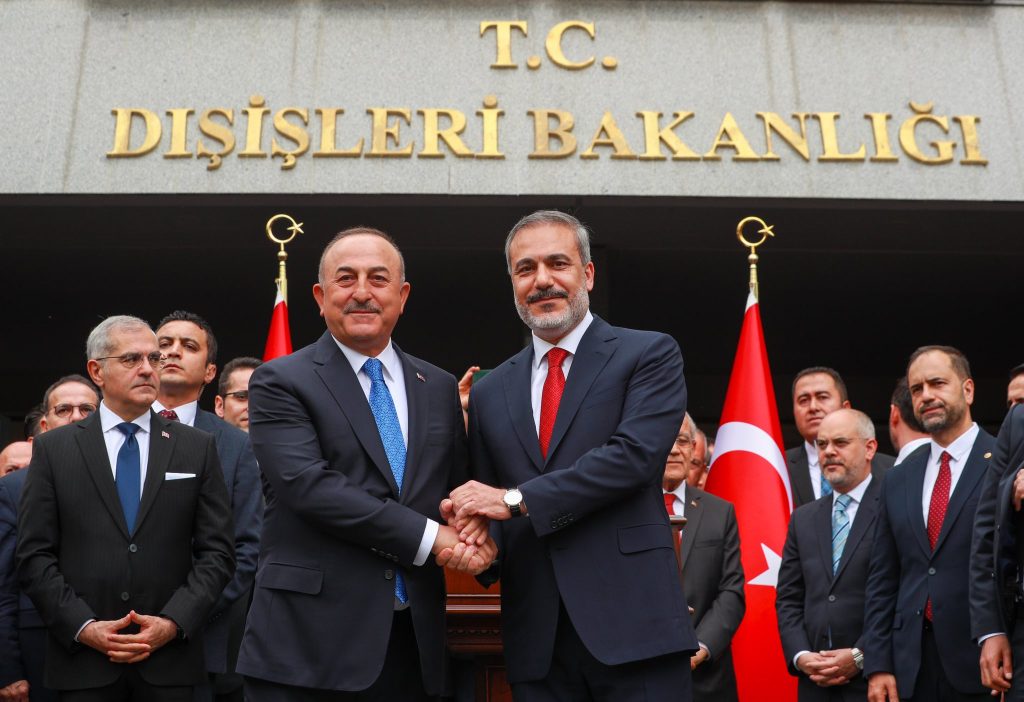
Their appointments come as part of a major reshuffle by President Erdoğan, who made a total of 16 changes to the cabinet. Just two ministers kept their jobs, the Health Minister Fahrettin Koca and Mehmet Nuri Ersoy, the tourism minister. The pair did not run for Parliament, unlike Çavuşoğlu, Soylu and Akar, who all did.
The three former ministers successfully stood as candidates for the ruling Development and Justice Party (AKP) and will now sit as MPs in AKP’s 268 bloc in the 600-seat Turkish Parliament.
Other prominent AKP faces who’ve swapped their ministerial posts for new roles as MPs include Fuat Oktay, Erdoğan’s former vice-president whose portfolio had included relations with the Turkish Republic of North Cyprus, and Bekir Bozdağ, the now-ex justice minister.
One important figure to return to the cabinet is Mehmet Şimşek, the highly regarded former Treasury and Finance Minister. Şimşek is back at the helm after vacating the post eight years ago. He faces a host of major challenges as he tries to stabilise Turkiye’s struggling economy with what is expected to be a return to more conventional fiscal policies.
Erdoğan also appointed Ömer Bolat as the new Trade Minister. The experienced businessman is a former president of the pro-government conservative Muslim Industrialists and Businessmen Association (MÜSİAD) and, since 2000, has also been CEO of the Albayrak Group, one of Turkiye’s leading conglomerates.
It’s not clear what relationship, if any, the Albayrak Group and the family of Erdoğan’s son-in-law Berat Albayrak have. Apart from sharing the same surname, Berat’s father Sadık Albayrak and Ahmet Albayrak, the founder of the Albayrak Group, are also both from Trabzon.
Still only 1 woman in 18-person cabinet
Gender imbalance has been a major feature of Erdoğan’s ministerial teams and yet again he only made a single female appointment to his new 18-person cabinet.
Mahinur Özdemir Göktaş becomes the Family and Social Services Minister – a position which seems to be the sole preserve of female politicians under AKP.
Kemal Kılıçdaroğlu yet to accept defeat
While Erdoğan has been busy establishing his new team, his main presidential challenger Kılıçdaroğlu has yet to formally accept defeat, let alone resign. For several days after losing the Presidential Election, the leader of the main opposition Republican People’s Party (CHP) was nowhere to be seen.
Kılıçdaroğlu’s defeat in the run-off and in the 14 May Parliamentary elections means the CHP leader has now lost seven national elections to Erdoğan in a row: the 2011 General Election, the two 2015 General Elections, the 2018 Presidential and Parliamentary Elections, and the 2023 Presidential and Parliamentary Elections.
His only electoral success has been in the Local Elections of 2019 and that was with the strategic support of the right-wing IYI Party, whose leader Meral Akşener was unhappy with the veteran CHP man putting himself forward as the opposition’s presidential candidate. Akşener nearly walked away from the 6-party opposition coalition because of it and the results vindicated her concerns.
The official results of the second round of the Presidential Election on 28 May gave Erdoğan 52.18% of the vote to 47.82% for Kılıçdaroğlu. It meant the challenger had been unable to overcome the five percent difference established in the first round, where Erdoğan won 49.5% to Kılıçdaroğlu’s 44.9%.
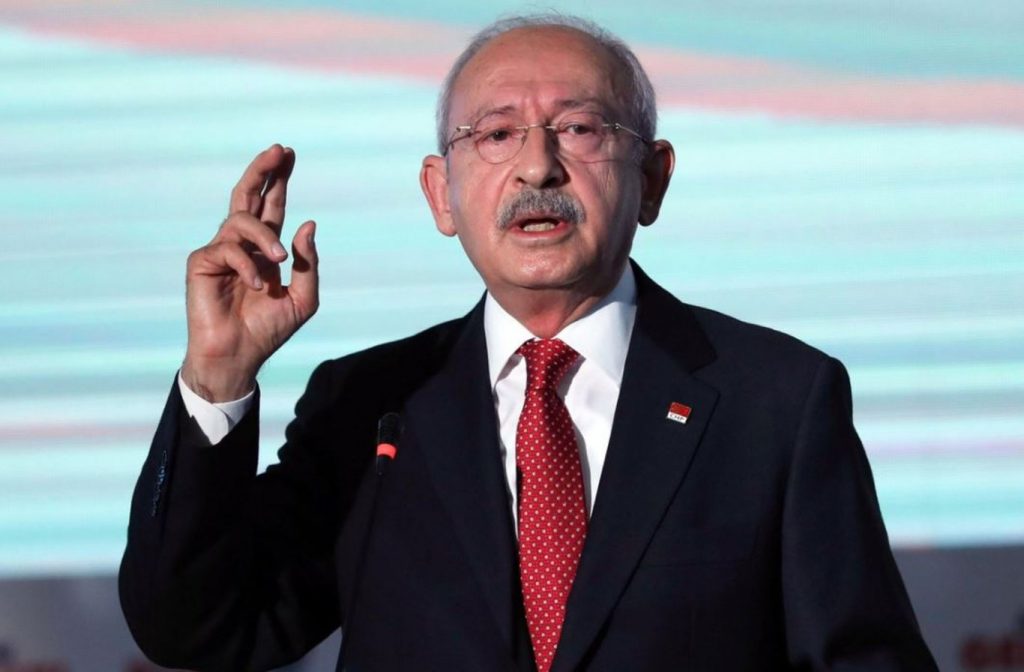
The 5% of votes won by far-right candidate Sinan Oğan in the first round was split between the two run-off rivals, after the would-be Kingmakers Oğan and his far-right Alliance partner Ümit Özdağ each backed a different camp.
Turnout was down in the run-off to 84.15%, compared with 87.04% in the first round.
As many neutral observers noted, the elections were far from fair: the incumbent was not only able to mobilise state resources to bolster his campaign bid, but to also ensure that state media and pro-government media gave Erdoğan maximum airtime versus minimal time for his challenger.
Kılıçdaroğlu was heavily smeared as a ‘terrorist sympathiser’, with fake videos showing the CHP head together with PKK terrorists even televised by the state broadcaster to further undermine opposition leader’s reputation and chip away at his potential support base.
While opposition voices rightly highlight the unfair conditions, Turkiye’s democracy has never been a level playing field. Erdoğan and the AKP faced similar circumstances when they first came to power 20 years ago, with the state apparatus and media in the hands of staunch Kemalist secularists.
As the post-mortem into Kılıçdaroğlu’s defeat in both Turkiye’s Presidential and Parliamentary Elections continue, it’s clear the 74-year-old’s ability to continue as leader of the main opposition is over.
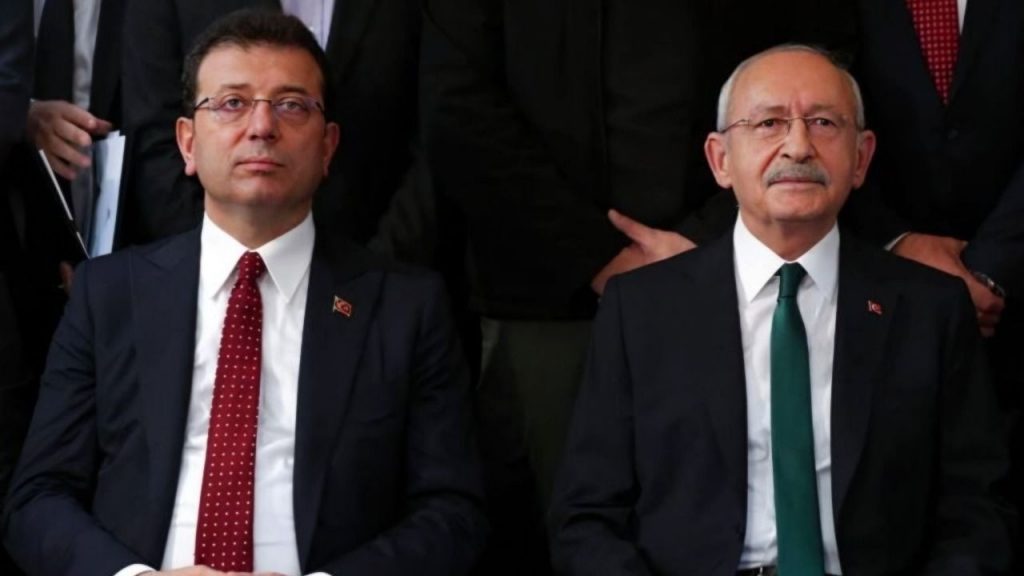
Last week, all members of CHP’s National Executive Committee resigned as a message to their leader, but instead of heeding the call to fall on his sword, Kılıçdaroğlu merely “welcomed” their departure.
Kılıçdaroğlu has headed CHP since 2010 and he may well want a say in who takes over from him, with the CHP Mayor of Istanbul Ekrem Imamoğlu the firm favourite.
With local elections due to be held in Turkiye on 31 March 2024, CHP need to move fast if they are to find a new leader, who in turn needs to stamp their authority on the party.
If the main opposition fail to convince the electorate that they are truly changing and have a strong new leader capable of dislodging Erdoğan from his throne, then it is likely that the country’s longest serving leader in the Republic’s 100-year history will continue to dominate Turkiye for many more years to come.


